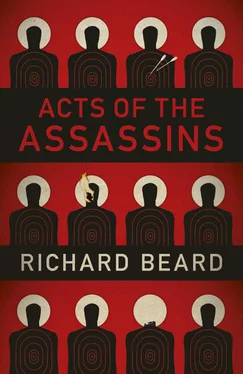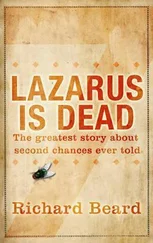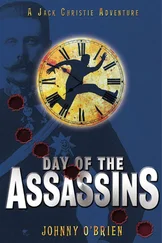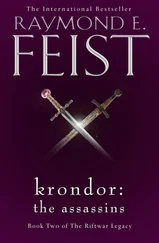Claudia avoided the fallout. She was young, and could prove she’d disobeyed Valeria’s illegal orders to assassinate Cassius Gallio. There was, after all, some justice in the world. In Rome Claudia worked hard, kept her life simple and was promoted through the reorganised Complex Casework Unit. Now she speculates about threats to civilisation wherever they may arise, though discounting the island of Patmos. The intelligence community knows of twelve disciples of Jesus, and extensive records exist for twelve spectacular deaths. Paul makes up the twelve, taking the place of John, and Claudia underlines the numbers in official ledgers. Twelve disciples, twelve dead bodies. Done and dusted, nothing more to see here, move along now please. Every time Claudia hides John and Cassius Gallio from sight she recognises a quiet act of love, of Caistor remembered.
Claudia sometimes sees Alma in the Roman markets, growing older, laughing with her mother as she barters for kugels and Mandelbrot, the two of them enjoying the benefits of life in a progressive world city. Alma’s leg was strengthened by extensive physiotherapy — at least that’s the most obvious cause — and she joined the regular army soon after her mother agreed to settle in Rome.
On Patmos, John meditates and falls into trances and remembers and generally wrestles with a fate he struggles to understand. His anger gives him strength, whereas Cassius Gallio mostly aches. His knees, his hips, his old man’s body subsiding. If nothing else, Gallio can write, and he writes for as long as John hears voices. John hears a word that sounds like millstones, and on another day a word like trumpets; he has bright visions of structures of glass that shine like gold, or of angels in the midst of heaven. Yes, Gallio tells him, he can see the angels. He can make out their vapour trails over the white island of Patmos, every sunny day during the summer months.
Cassius Gallio refuses to be the first to go. He can’t risk missing Jesus, but with every year he is physically weaker. Sometimes he mishears John’s stories, as if they’re true, or forgets that after so much time most of what remains is story. Any life, he finally thinks, can be told as a sequence of miracles, even his own. How extraordinary that the crucifixion of Jesus should have been allocated to a young Speculator whose zealous guarding of the tomb made the escape of Jesus more memorable. Or what a coincidence that of all people Valeria was in a position to remember his plight and call him back from exile. Cassius Gallio has lived these and many other miraculous accidents, if he chooses to remember them, until the cause and effect of his life starts to deceive like a plot, a life mapped out.
It is true that occasionally Cassius Gallio is comforted by what John is able to believe, a vision of eternity where everything is now, and now is everything. At the same time he’s proud never to have called on Jesus for help. He resists the divinity of Jesus as an explanation for the path of his life, and if Jesus would like to correct him then he’d better move soon. Time feels short, and one day on their walk to the cliff Cassius Gallio falls. He falls down, as if at imaginary feet.
John lifts him up, but Gallio is too old and frail to be righted. John makes space in the cave, and lays down his friend on woven mats, warms him with woollen blankets. Gallio will not close his eyes, he will not. He speculates to the end, and beyond the end, and beyond, until John takes pity and reaches out. Cassius Gallio takes hold of John’s hand and presses it to his feeble chest. At last, he closes his eyes. In the darkness he grips the hand that Jesus held, once upon a time.












